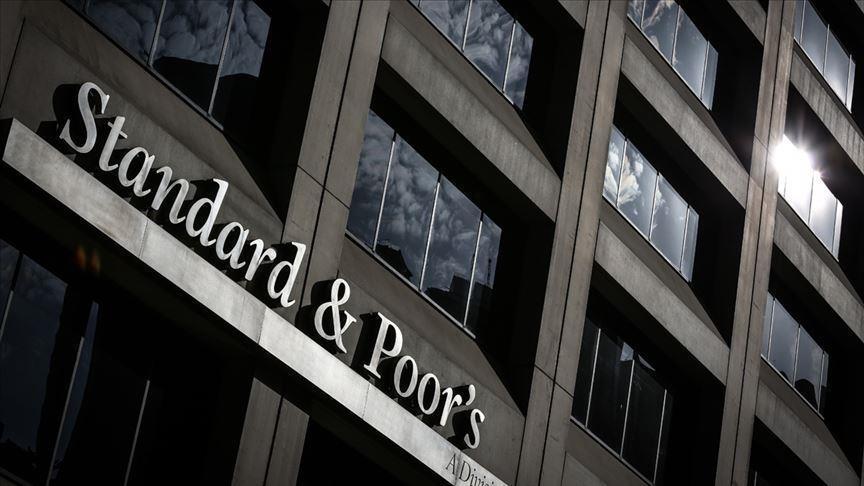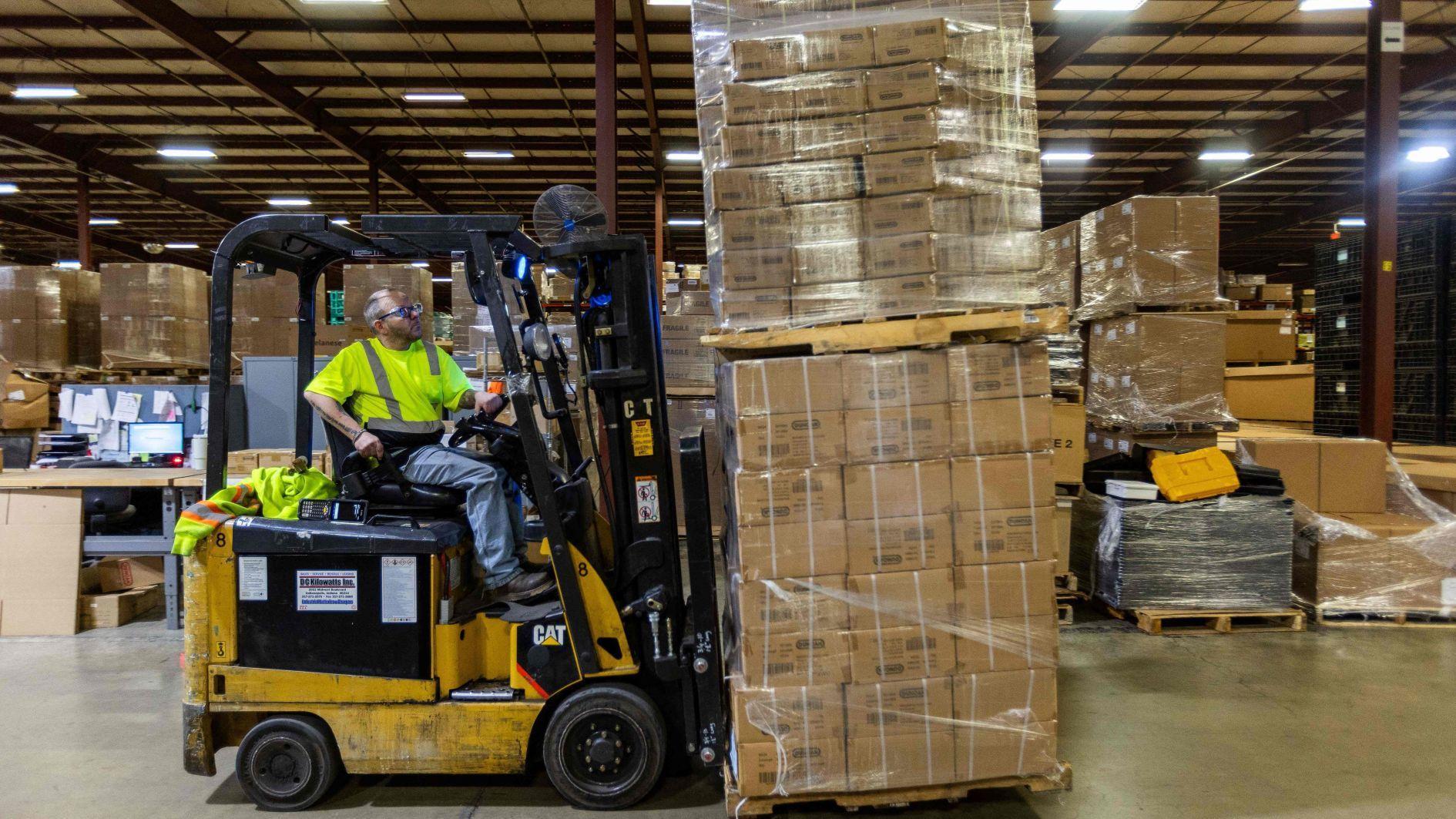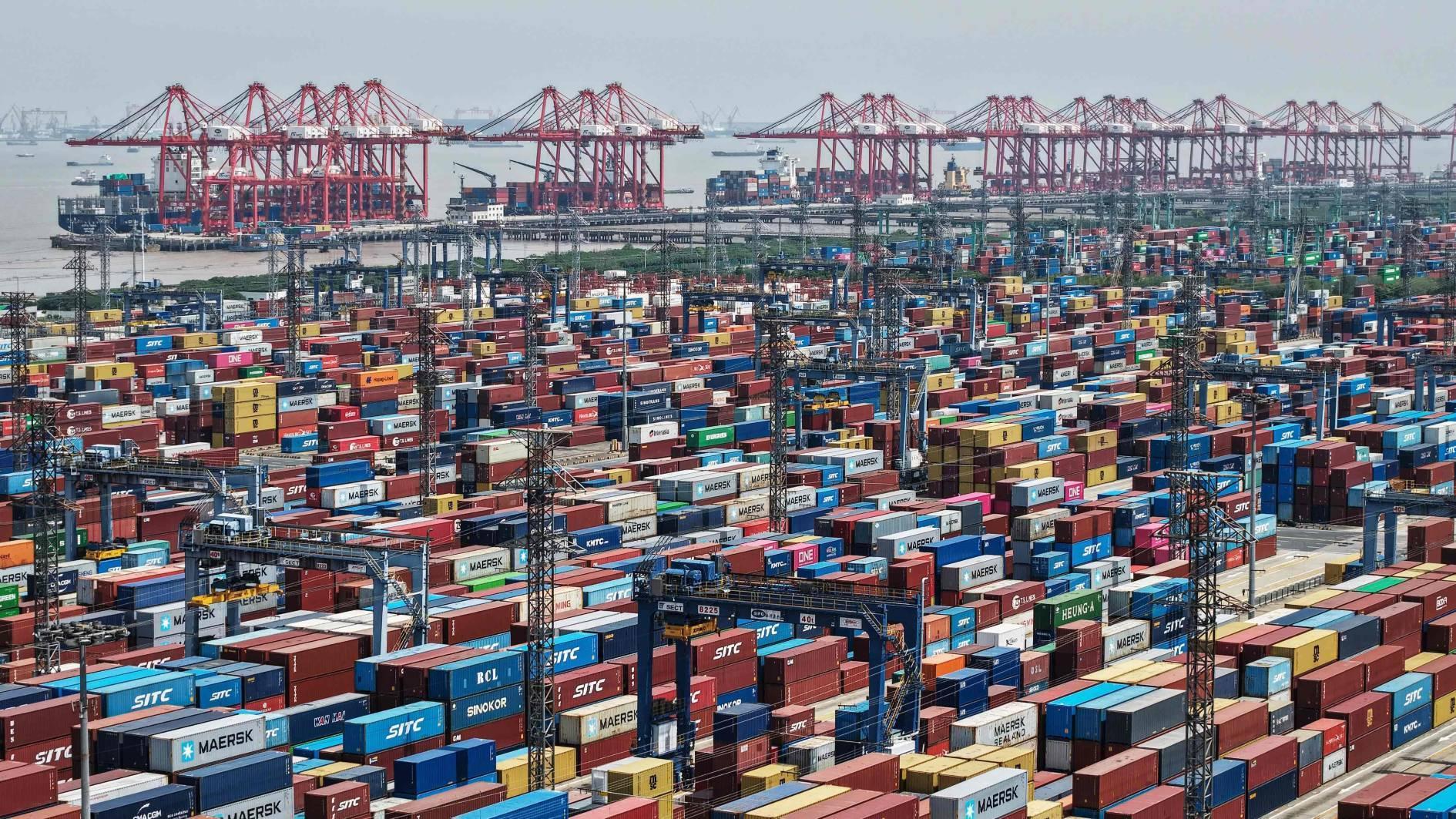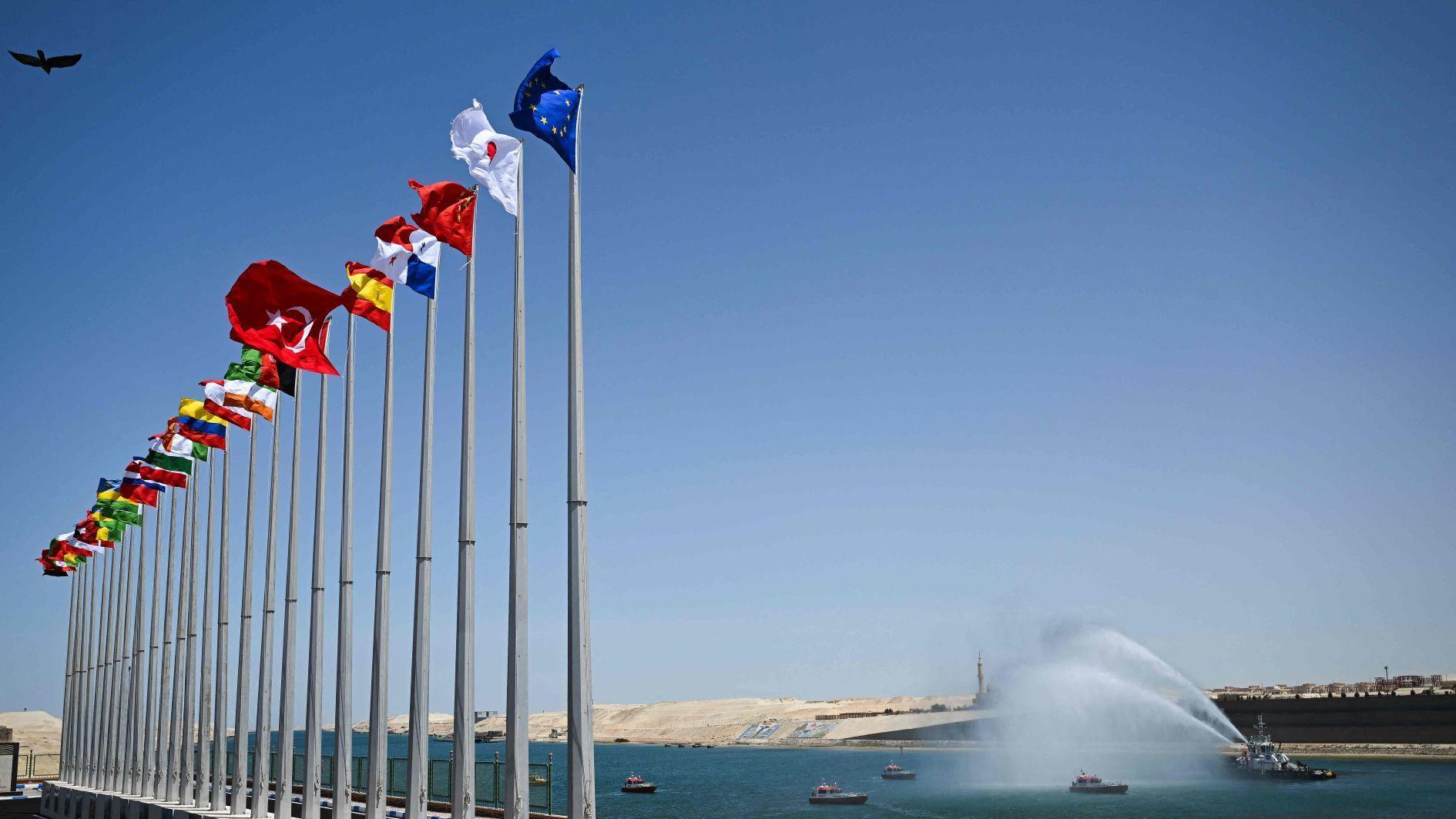German vote winner Merz faces tough talks to build gov’t
BERLIN
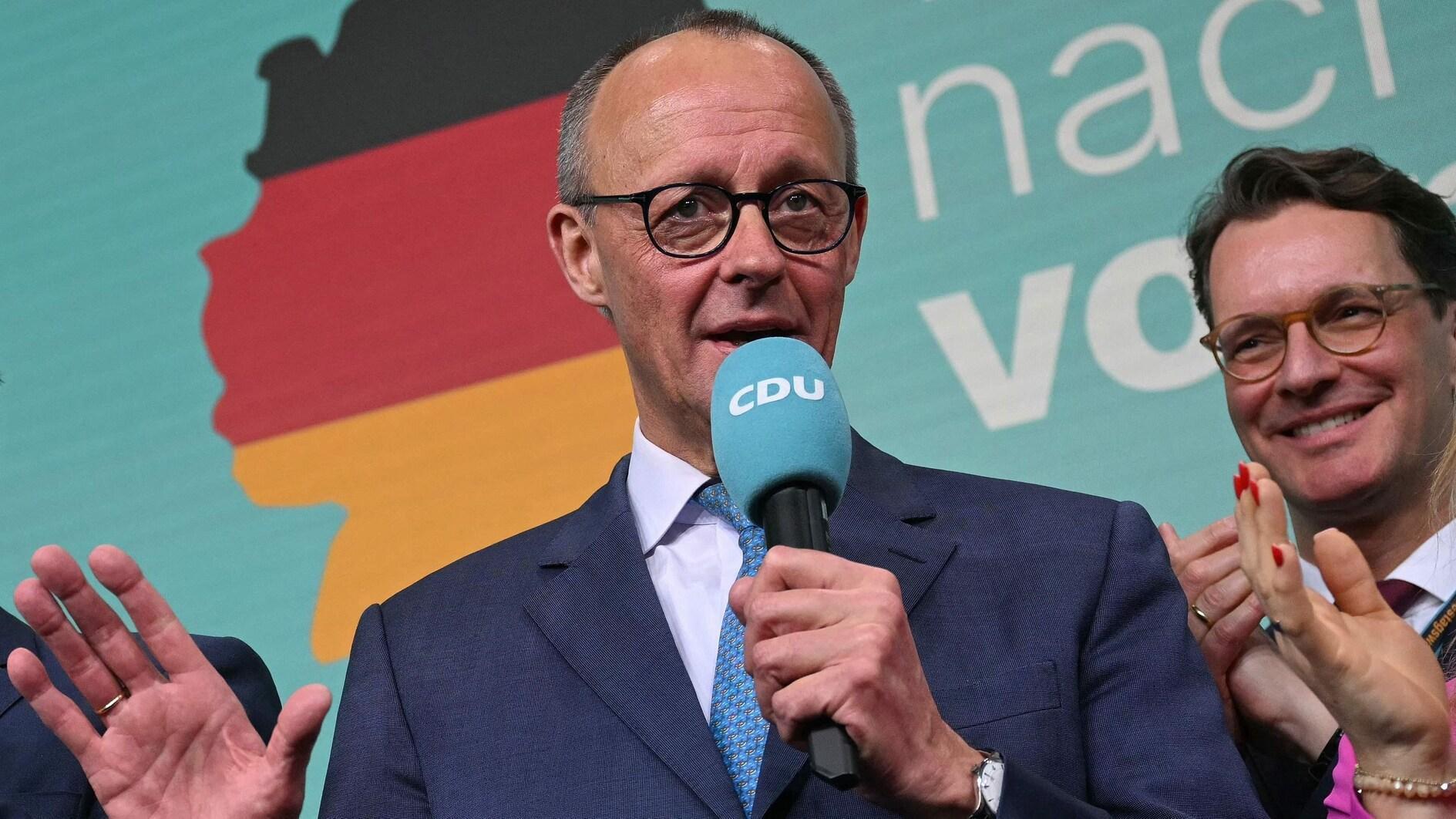
Provisional results confirmed that mainstream conservatives led by Friedrich Merz won Germany’s national election, while a far-right party surged to become the nation’s second-largest.
Merz vowed to get to work on Monday on the arduous task of building a new coalition government, warning "the world isn't waiting for us."
The campaign was dominated by worries about the yearslong stagnation of Europe’s biggest economy and pressure to curb migration, something that caused friction after Merz pushed hard in recent weeks for a tougher approach. It took place against a background of growing uncertainty over the future of Ukraine and Europe’s alliance with the United States.
The results released by the electoral authority showed Merz's Christian Democrats and the center-left Social Democrats winning a combined majority of seats in the national legislature after small parties failed to make the electoral threshold.
That gives Merz the best chance of becoming the country’s next chancellor. He said on election night that he hopes to form a government by Easter at the latest.
He has ruled out a coalition with the far-right Alternative for Germany, or AfD , which is now the country's second-largest party after its best showing ever.
The party was jubilant on Sunday night, with leaders vowing to become the country’s main party in the next election as its appeal expands. The AfD has established itself as a significant political force in the 12 years since it was founded, but it hasn’t yet been part of any state or national government.
That’s the result of what is often called a “firewall” against the anti-immigrant, far-right party. Other parties say they won’t work with Alternative for Germany, which is under observation by the domestic intelligence agency for suspected right-wing extremism, something that AfD objects to strongly. Its branches in three eastern states are designated “proven right-wing extremist” groups, which is particularly sensitive in view of Germany’s Nazi past.
For the time being outgoing Chancellor Olaf Scholz, whose SPD party suffered a stinging defeat, will remain.
The left-wing Sahra Wagenknecht Alliance, came in just barely under the 5 percent hurdle needed to get seats in parliament, while the pro-business Free Democrats also failed to reach 5 percent.
Merz has warned against more paralysis in Berlin at a time US President Donald Trump is driving head-spinning change, the German economy is in recession, and society split after a polarising campaign.
Speaking late Sunday, his victory dampened by a far-right surge, Merz said a united Europe must build up its own defences as he had "no illusions at all about what is coming out of America".
With over 28 percent of the vote, his CDU/CSU bloc handily defeated Scholz's Social Democrats (SPD) and the Greens, as the anti-immigration Alternative for Germany (AfD) celebrated a record of over 20 percent.
Following a heated campaign -- dominated by the flashpoint issue of immigration after a spate of deadly attacks blamed on migrants -- Merz will now have to reach out to his former campaign-trail SPD foes.
The conservatives will first enter talks without Scholz, who apologised for a "bitter" defeat at 16 percent, while his popular defence minister, Boris Pistorius, was expected to play a more central role.
In a TV debate late Sunday, Merz said he had been right to fight a "very tough election campaign" in which, on the eve of the vote, he had fumed about undefined "left-wing crazies".
"But now we will talk to each other," Merz said, striking a far more conciliatory tone. "We have to form a stable government as quickly as possible, with a good, stable majority."
'Herculean task'
Merz must seek to establish communications with Trump, who has unsettled Ukraine and its European backers by reaching out to Russian President Vladimir Putin.
At the same time he must enter a process of horse-trading on party policies and red lines to hammer out a platform for a future governing alliance.
"These are difficult starting conditions for a new German government, which is facing Herculean tasks in domestic and foreign policy," said Cornelia Woll of the Hertie School Berlin.
"One might hope that Germany will nevertheless be able to act quickly, so that it does not just have to watch how Trump and Putin shape the future."
In an early positive response, Trump congratulated the conservatives on their win, describing it as "a great day for Germany, and for the United States".
"The people of Germany got tired of the no common sense agenda, especially on energy and immigration," said Trump, whose surrogates have hounded Scholz's outgoing administration.
French President Emmanuel Macron said he looked forward to jointly working with Merz for a "strong and sovereign Europe".
"In this period of uncertainty, we are united to face the great challenges of the world and of our continent," he posted on X.
Ukrainian President Volodymyr Zelensky also congratulated Merz, saying he looked forward to working with Germany to "strengthen Europe".
'No fireworks'
Germany's political crisis was sparked by feuding in Scholz's three-way alliance, which broke apart on Nov. 6, the day Trump was re-elected.
Woll said "Germany has chosen the conservative turn, but forming a government could be difficult" after the CDU/CSU fell almost two points short of their goal of 30 percent.
CDU lawmaker Wolfgang Bosbach said his party "can be satisfied, but not much more than that" labelling the result "no reason for fireworks".
As the vote count continued through the night, the Greens stood at 11.6 percent and the small far-left Linke at eight percent.
Merz dodged a bullet after the "left-wing conservative" Sahra Wagenknecht Alliance (BSW) appeared to have missed by a sliver the five percent cut-off mark for entry into the Bundestag.
Fewer parties make it easier to gain a majority, and having the BSW in parliament would have forced him into a bumpy three-party coalition like the one Scholz led.
"Germany has learned the hard way over the last three years that such coalitions are anything but stable and severely limit the government's ability to act," said Woll.
The liberal FDP, which sparked Scholz's government collapse, also narrowly missed the five-percent hurdle and crashed out of the Bundestag.
Whatever happens, Merz and all other parties have vowed to reject the AfD's overtures and keep them out of power, behind a "firewall" of non-cooperation.
As he is now likely headed for a left-right "grand coalition" of the two big-tent parties, the CDU/CSU and SPD, Merz has said he wants to have a government by mid-April.



